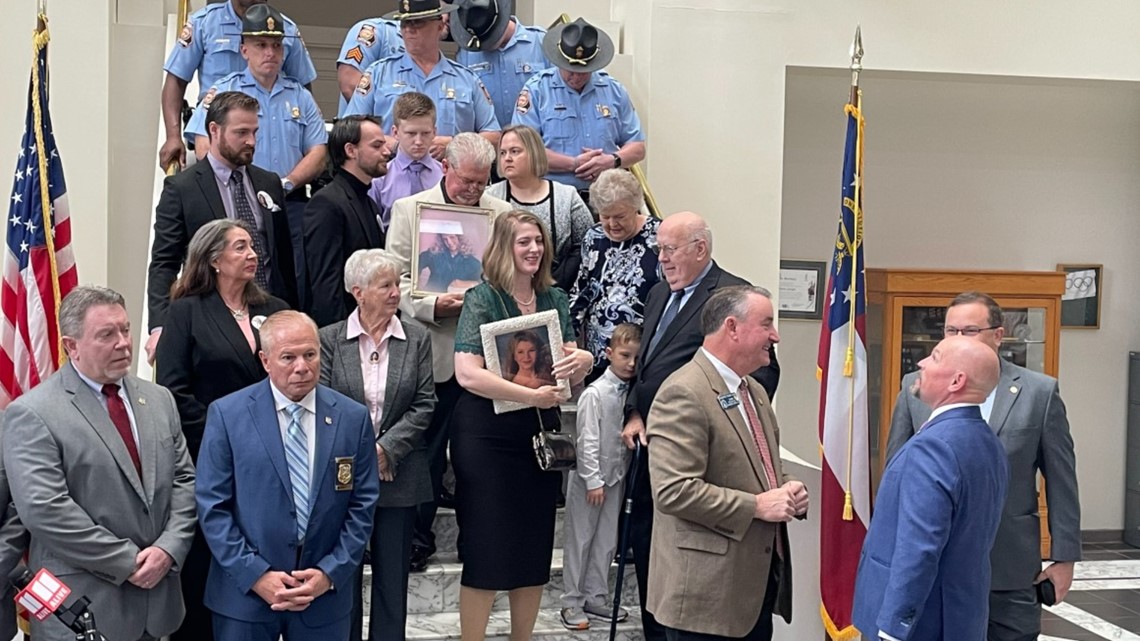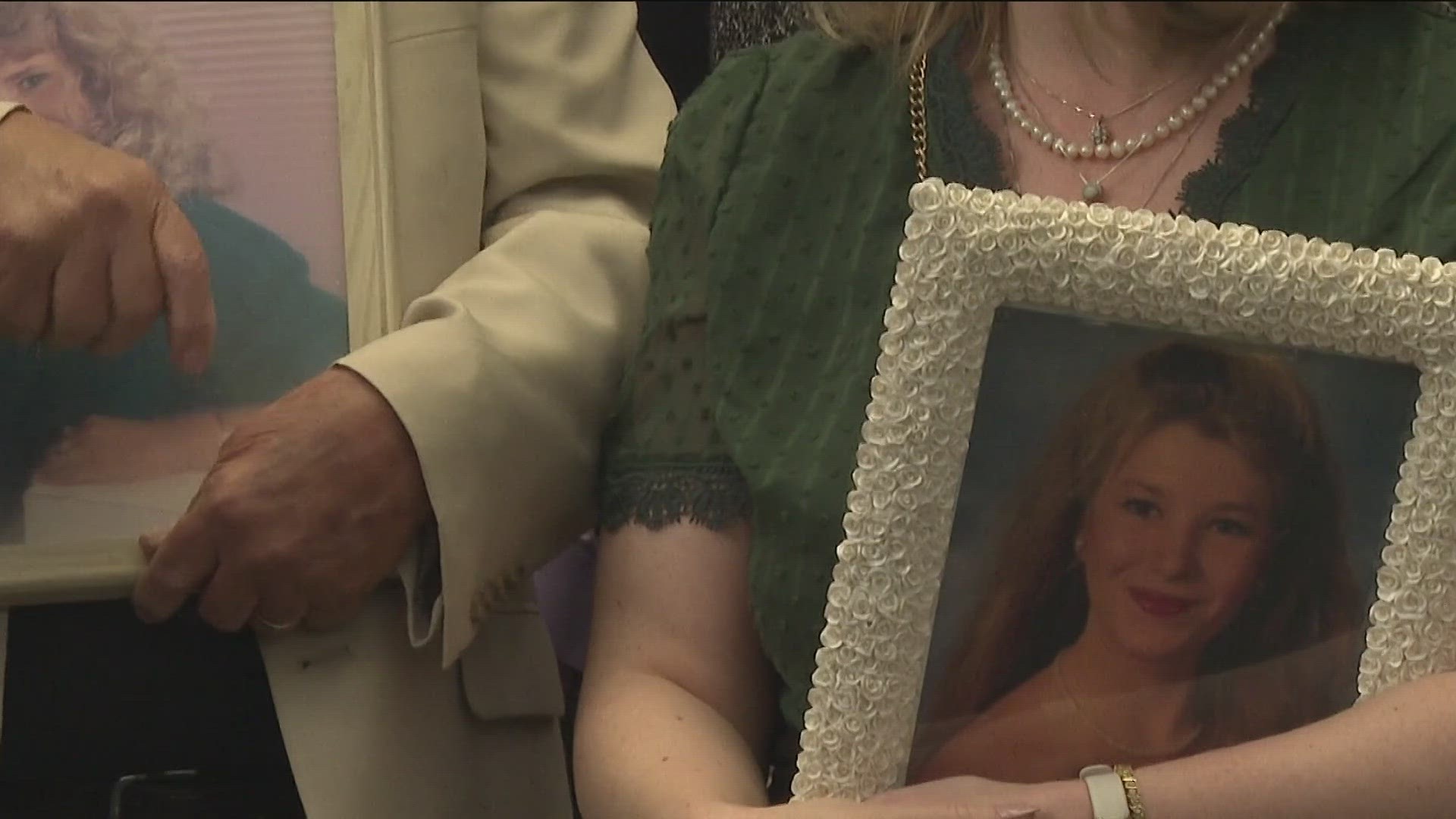ATHENS, Ga. — Georgia Governor Brian Kemp signed legislation on Friday that would help cold case victims and their families.
The ceremonial signing of HB 88, or the Coleman-Baker Act, now lets families of homicide victims request law enforcement agencies to review cold cases, according to a release from the governor's office.
This act also allows the victims' families to reopen and potentially apply new technology and resources to help solve their cases that have gone cold.
Kemp, his wife, along with local and other state leaders traveled to the Athens-Clarke County Courthouse on April 28 for the singing. It happed around 9:30 a.m.
In February, the Georgia Bureau of Investigation's website showed the agency is keeping tabs on more than 100 unsolved homicide cases. GBI also lists dozens of unidentified remains and missing person cases. Some, lawmakers argue, could be solved if this bill becomes law, nudging authorities to revisit these cases.
It was a hope that the families of Tara Louise Baker and Rhonda Sue Coleman, for which the act was named, held on to.


More about Tara Louise Banker and Rhonda Sue Coleman
Baker, a University of Georgia law student, was killed in Athens 21 years ago. Her sister Meredith Baker Schroeder would like the case reopened so her family could gain some closure. She said updated technology could help forge new leads.
"This was in 2001 when DNA evidence was the new hot technology and nobody knew how to process DNA properly or even apply it to a database to make it useful," Schroeder said in an interview with 11Alive's Doug Richards.


Schroeder had testified to a House committee, explaining how thieves stole Baker’s identity as the case dragged on.
"Now imagine not only losing your daughter but to be denied her cause of death; and to have no death certificate issued for 10 years, allowing her to be continually victimized through identity theft," Schroeder said.
The bill would also make issuing a death certificate in a cold case easier, helping families gain a sense of closure sooner.
"For 30 years, a crucial piece of evidence sat unprocessed in the evidence room of the Jeff Davis County Sheriff’s Office," Natasha Bennett previously testified to a House committee.
Bennett is Coleman's cousin. She was killed in 1990 in the south Georgia town of Hazelhurst.


"It was an oversight that could have been discovered earlier had her family had a process by which to initiate a cold case review," Bennett said.
The Coleman-Baker Act gives crime victims' families a look at case files if six years have passed. It would also force law enforcement agencies to have a system to accept such requests and reinvestigate the case if the families call for it.

